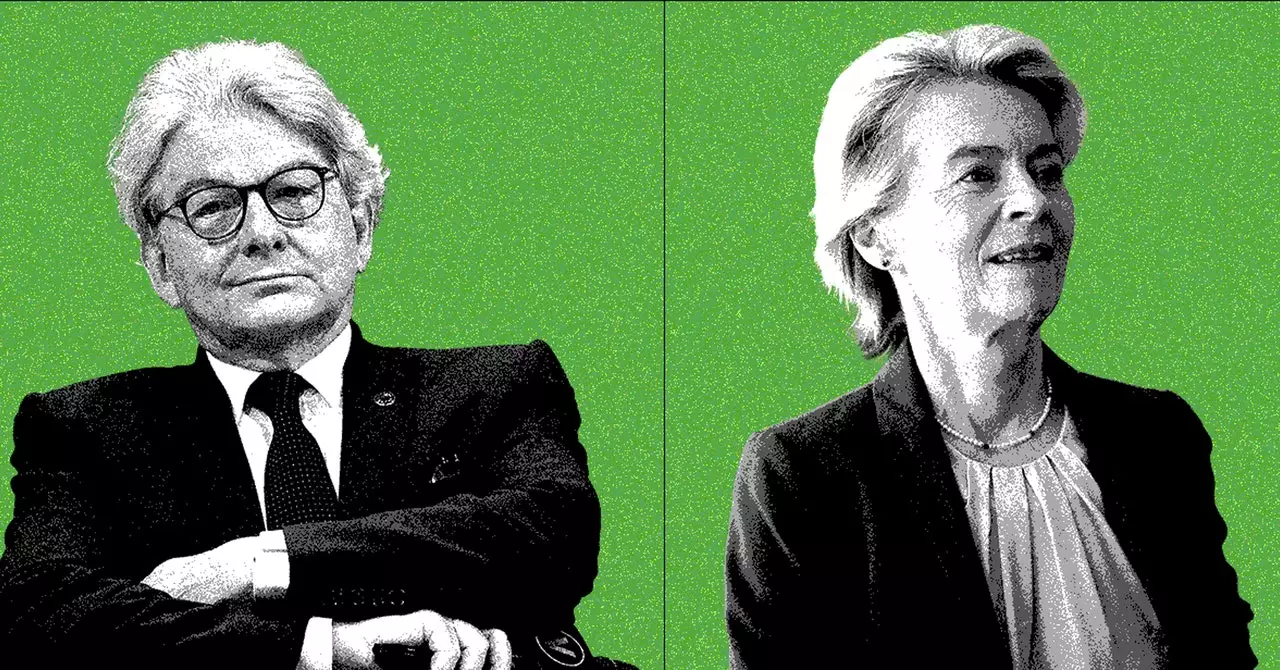In the rapidly evolving sphere of technology regulation, the past few years have been characterized by heated confrontations between the European Union (EU) and major American tech companies. This contentious relationship has often found its most visible proponent in Thierry Breton, the outgoing EU Commissioner for the Internal Market, who has personified the EU’s assertive stance towards tech giants. As he departs from his role, the implications of his exit raise critical questions about the future of tech governance in Europe and how the incoming leadership will navigate the challenges ahead.
Breton’s assertive approach was marked by a series of bold public statements aimed at ureaing the tech industry to comply with EU regulations. One memorable moment was his visit to Silicon Valley, where he issued stern reminders about impending regulatory deadlines. His determination resonated with many who viewed his combative nature as a necessary response to the perceived excesses of companies like Apple and TikTok. Phrases like “our children are not guinea pigs for social media” encapsulated the depth of his concern over the impact of technology on society, particularly concerning the youth.
New Leadership: Henna Virkkunen Steps Up
As the baton passes to Henna Virkkunen, a Finnish politician from the center-right European People’s Party (EPP), the landscape of tech regulation is poised for a significant transformation. Virkkunen’s background in spearheading initiatives such as the Digital Services Act demonstrates her established role in shaping EU tech policies. However, the nuances of her leadership style remain to be seen. Analysts predict her approach will be less direct and perhaps more diplomatic than her predecessor’s.
Umberto Gambini, a seasoned advisor and consultant, suggests that Virkkunen’s more subdued personality may benefit the relationship between the EU and tech corporations. This shift could signal a recalibration of the often adversarial rapport established under Breton. As the pressures of rapid technological advancement continue to mount, her leadership will be pivotal in creating a cooperative dialogue rather than confrontation. However, given her new title as executive vice president for tech sovereignty, security, and democracy, she will also be expected to uphold stringent oversight in safeguarding the interests of European citizens.
The restructuring of roles within the EU is not merely a reshuffling of names but a strategic repositioning that responds to the complexities of emerging technologies. Breton’s resignation comes during an essential period for the EU, which stands at a crossroads regarding its regulatory framework. The EU’s commitment to securing a competitive digital environment has prompted an evolution of its legislative ambitions, especially toward American tech powerhouses that dominate the market.
As members of the new team led by Ursula von der Leyen await confirmation from the European Parliament, the longer-term vision of EU regulations concerning technology will remain under scrutiny. Mathias Vermeulen, a public policy director based in Brussels, stresses the ambitious previous stance towards drafting new legislation while addressing the perceived threats from big tech. The blending of concerns about consumer safety, data protection, and market competition will require a careful balance that Virkkunen must achieve.
Looking forward, the EU’s approach toward tech regulation will likely evolve under Virkkunen’s guidance. The industry awaits to see how her philosophical and strategic directions diverge from the confrontational stance embodied by Breton. Will she foster a collaborative environment where dialogue prevails over discord, or will she maintain the ironclad rules imposed by her predecessor?
Regardless of her path, one clear underpinning remains: the EU’s stance will not wane, regardless of who leads the charge. The increasing maturation of the digital economy within Europe necessitates an unwavering commitment to safeguard user rights and foster innovation, demonstrating the essential role of regulatory bodies in an interconnected world. How Virkkunen navigates this landscape may define not only her career but the future dynamics of technology in Europe for years to come.

